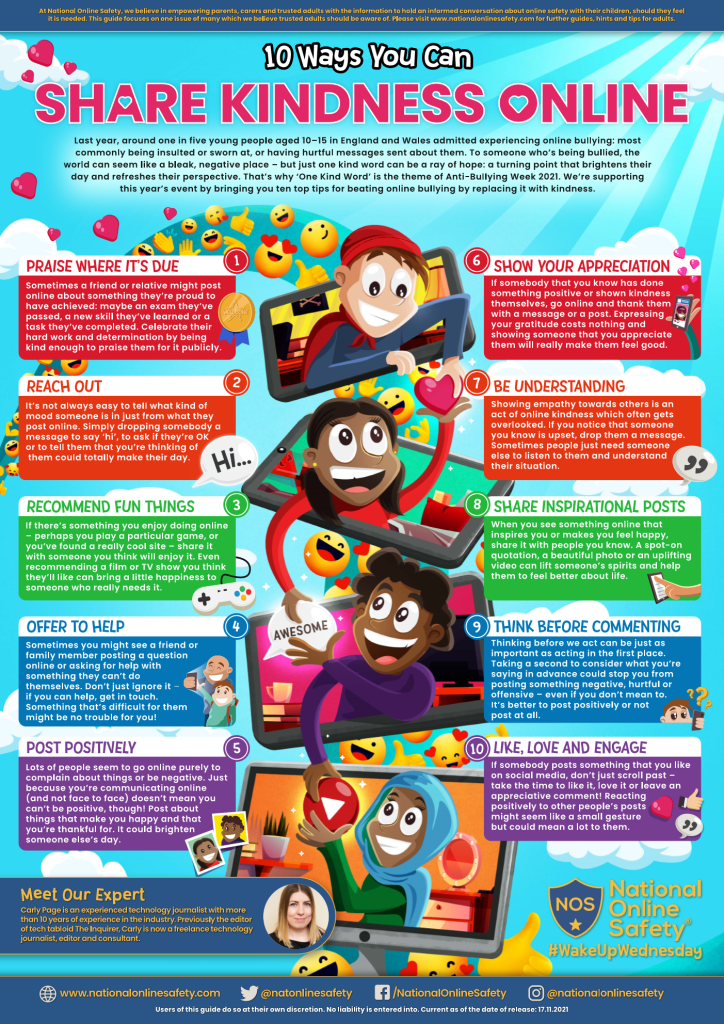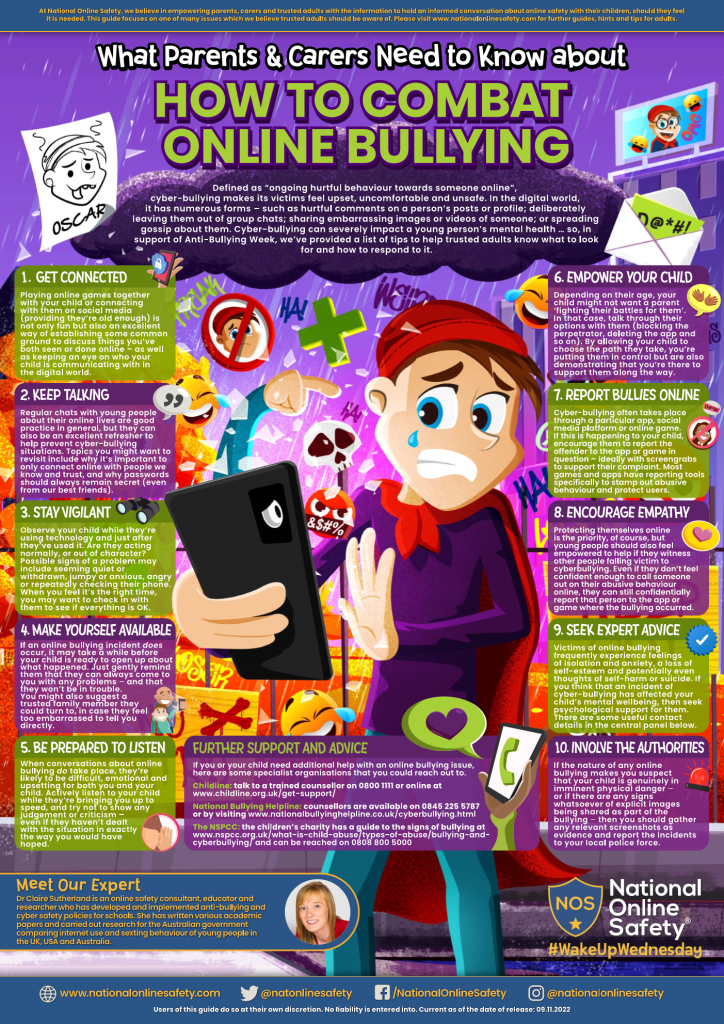For Anti-Bullying Week, we wanted to share some resources about sharing kindness and combatting bullying online. Click on the images for larger .pdf versions.


These guides are from National Online Safety.
For Anti-Bullying Week, we wanted to share some resources about sharing kindness and combatting bullying online. Click on the images for larger .pdf versions.


These guides are from National Online Safety.
It’s just one of several changes that have set the social media giant on what many consider a concerning path in online safety terms. This #WakeUpWednesday guide provides a run-down of the most significant tweaks made to X; their potential safeguarding implications; and how to help ensure young people minimise the risks while they continue to use the service.
Grab the new guide below!National Online Safety
This guide is from National Online Safety.
According to Ofcom, WhatsApp is used by more than half of 3- to 17-year-olds in the UK (including one in three from the 8–11 bracket), despite its 16+ age restriction. If your child hops onto WhatsApp to stay in touch with friends or family, our updated guide to the service contains the key details you’ll need to support them in doing it safely.
Encrypting messages to protect users’ privacy has undeniable merit, but it also poses obvious risks – especially to young people. Updated to reflect the newest version of WhatsApp, this #WakeUpWednesday guide brings trusted adults the latest essential info.
Grab our new guide below!National Online Safety
This guide is from National Online Safety.
In reality, the topic has become increasingly complex – with respect for other people’s children who might also be in the photos and our own child’s future feelings among the considerations. This #WakeUpWednesday guide assesses the potential pitfalls of publicly posting our pics.
Grab our new guide below!National Online Safety
This guide is from National Online Safety.
With platforms such as YouTube, Facebook, TikTok and Twitch all offering routes to a vast online audience, young people have enthusiastically taken up the baton – streaming on subjects from gaming to sports to live shopping (yes, really!). Potentially having strangers among one’s viewers, though, is just one of many concerns. Our #WakeUpWednesday guide has the key information.
Read on to access your free guide…National Online Safety
This guide is from National Online Safety.
As young people’s screen time almost inevitably increases over the holidays, parents like to feel confident that their child will stay safe while they’re exploring the digital world. So we’ve produced a #WakeUpWednesday poster with some simple solutions to help children avoid frequent online pitfalls and enjoy a more positive experience when they go online this summer.
Read on to access your free guide…National Online Safety
This guide is from National Online Safety.
There’s Replika and Kuki, for instance, while Snapchat has recently got in on the act with My AI – and search engines like Bing and Google have developed their own versions. Are these machine intelligences suitable online companions for young people? What are their limitations and weak spots? Our #WakeUpWednesday guide profiles the emergence of AI ‘virtual friends’.
Read on to access your free guide…National Online Safety
This guide is from National Online Safety.
Anime is a popular form of entertainment which can on surface look a little childlike and child friendly. However, many comic books and films have adult content and are not appropriate for children. Please read the attached guide for more details.
Much of this wealth, of course, is unlocked by entering into partnerships with various brands – which then raises all manner of questions about some influencers’ authenticity. Is their praise for certain products genuine, or simply because they’ve been paid for their endorsement? This week’s #WakeUpWednesday guide peels back the filters for a closer look at influencers.
Read on to access your free guide…National Online Safety
This guide is from National Online Safety.
Indeed, some aspects of daily digital life can have a profoundly negative impact on how young people feel about themselves, their friendships and relationships, and the world in general. To coincide with Mental Health Awareness Week in the UK, today’s #WakeUpWednesday poster is a collection of quick but effective tips to help children prioritise their own wellbeing online.
Read on to access your free guide…National Online Safety
This guide is from National Online Safety.